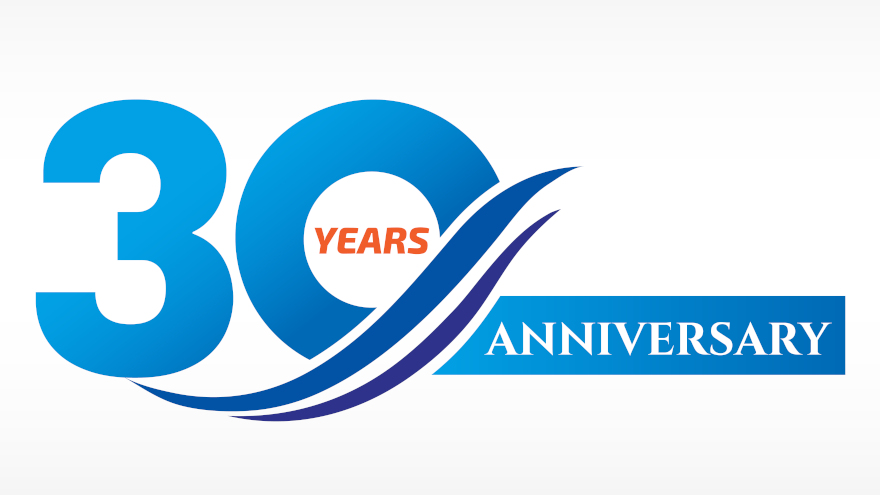The newest financing data from Edmunds and Kelley Blue Book reinforced how the newly installed chairman of the National Automobile Dealers Association didn’t mince words as the auto industry gathered for annual festivities in San Francisco.
“Affordability is an issue. All of the new technology, safety features and fuel economy add costs. That’s a real concern,” current NADA chair Charlie Gilchrist told fellow dealers and finance company executives who assembled for the closing day of the Vehicle Finance Conference hosted by the American Financial Services Association.
On Friday, Edmunds arrived with information to illustrate just how much of a potential issue affordability is becoming for possible buyers walking into your showroom, scanning online inventory or completing financing applications.
Edmunds reported that tightening credit conditions and rising vehicle prices continued to squeeze consumers in January. Due in part to an evaporation of zero percent financing deals, the average annual percentage rate (APR) on new financed vehicles hit the second highest point in 10 years in January, averaging 6.19 percent.
The newest reading is up from 4.99 percent last January and 4.22 percent five years ago.
Additionally, the average transaction price of a new vehicle is expected to hit a near-record high of $37,150 in January, and zero percent financing offers dropped to their lowest level since 2006.
The analysts at Kelley Blue Book reported similar figures. They indicated the estimated average transaction price for a light vehicle in the United States was $37,149 in January, up 4.2 percent or $1,481 from January of last year.
“Car shoppers who are returning to the market for the first time in a few years could be in for a big shock,” said Jessica Caldwell, Edmunds’ executive director of industry analysis. “Vehicle prices and interest rates are so high right now that consumers are facing the very real possibility of spending thousands of dollars more on a new vehicle than they did last time they purchased a new car.”
And depending on which new model they choose, that sticker and financing shock could be intense.
“There are several factors contributing to strong average transaction prices, which climbed 4 percent year-over-year,” said Tim Fleming, analyst for Kelley Blue Book.
“First, Tesla has approached BMW and Mercedes-Benz U.S. sales numbers in recent months with even stronger transaction prices,” Fleming said. “Also, full-size trucks are more popular than they have been for over a decade, and the new Chevrolet Silverado, GMC Sierra and Ram 1500 pickups helped drive prices up.”
Although Edmunds experts noted that sales in January showed relative strength and the overall impact of the polar vortex across the Midwest was minimal, analysts caution that sales are likely to take a turn through the rest of 2019.
“Although January saw a slight lift, higher fleet sales give the false appearance of a more robust sales month,” Caldwell said. “If the economy starts to slip for any reason, we could see significant repercussions for the overall market.”
Encouraging employment news
At least for now, it appears consumers will need vehicles to get to their employment while gaining income to handle those financing commitments. The trend stems from the U.S. Labor Department’s January Jobs Report also released on Friday.
U.S. Secretary of Labor Alexander Acosta said January’s Job Report demonstrated “the strength of the American economy” as the January Employment Situation report indicated 304,000 jobs were added. Acosta said private sector job creation continued to surge despite the partial government shutdown.
Acosta also noted significant growth in the mining, construction, and transportation and warehousing sectors led the report.
Officials pointed out the unemployment rate ticked up by 0.1 percentage point to 4.0 percent, largely as a result of the temporary lapse in federal government funding. However, January represented the 11th consecutive month that the unemployment rate has been at or below 4.0 percent.
The federal agency went on to mention average hourly earnings rose by 3.2 percent, marking the sixth straight month in which year-over-year hourly earnings have been growing at or above 3 percent. Average weekly earnings rose at an even more robust 3.5 percent year-over-year.
“Another key indicator in the report pointed to the increase of the labor force participation rate to 63.2 percent, the highest rate since August 2013,” Acosta said.
“As the jobs and employment data normalizes over the coming months, we are confident the nation’s economy will continue to build on the strength seen in 2018 and the first report of 2019,” he added.
The latest employment data also impressed Curt Long, who is chief economist at the National Association of Federally-Insured Credit Unions (NAFCU).
“The January jobs report showed no signs that hiring is slowing down,” Long said. “The slight uptick in the unemployment rate owes to the highest rate of labor force participation in over five years.
“Wages growth slowed, which suggests there is still room to run. It also supports the Fed’s patient stance on rates, as inflationary pressures remain muted,” Long added.
Resilient auto industry
Brad Korner, general manager for Cox Automotive Rates and Incentives, described how OEMs didn't lean on a crutch of the past to keep metal rolling over the curb.
"Automakers in January continued a relatively tempered, measured approach to incentives. Our team was tracking fewer programs in the month, notably fewer at Ford, which uncharacteristically held steady and offered fewer-than-normal regional programs," Korner said.
"In January, lease pull-aheads remained popular and there was continued healthy spending on full-size pickups trucks, notably from Ford and GM, who both have money and programs in place on 2019 models to compete with the new RAM model which is offering less incentives due to a high consumer demand," he continued.
"The incentive business is experiencing a transition away from incentive promotion and toward a focus on monthly payments for both finance and lease deals. This is likely to combat the affordability issues and help consumer with budgeting for a new vehicle," Korner went on to say.
"Also, as more digital retailing solutions are offered, consumers are finding more transparency in the deal, with less emphasis on the amount of a rebate or incentive and more emphasis on the resulting monthly payment," he added.
No matter what headwinds might appear in terms of elements like affordability — especially if the Federal Reserve continues to adjust interest rates — Gilchrist is confident dealerships will still be turning used and new metal throughout the year. Along with being NADA chair, he is also president of Gilchrist Automotive, which includes Buick-Chevrolet-GMC, Chrysler-Dodge-Jeep-Ram, Ford, Nissan and Volkswagen franchises at five Texas dealership locations in the Dallas-Fort Worth area.
“We respond well to our local markets,” Gilchrist told the auto finance community during AFSA’s event. “This is a fun business, but it’s an intense business. We have to smile every day and keep our attitude right.”
New-Car Finance Data
|
|
January 2019
|
January 2018
|
January 2014
|
|
Term
|
69.1
|
69.2
|
65.9
|
|
Monthly Payment
|
$551
|
$524
|
$476
|
|
Amount Financed
|
$31,707
|
$31,236
|
$27,573
|
|
APR
|
6.19
|
4.99
|
4.22
|
|
Down Payment
|
$4,191
|
$3,914
|
$3,628
|
Used-Car Finance Data
|
|
January 2019
|
January 2018
|
January 2014
|
|
Term
|
67.2
|
66.9
|
64.4
|
|
Monthly Payment
|
$407
|
$384
|
$363
|
|
Amount Financed
|
$21,763
|
$21,084
|
$19,441
|
|
APR
|
8.88
|
7.83
|
7.58
|
|
Down Payment
|
$2,614
|
$2,473
|
$2,200
|
Source: Edmunds
Darwin Automotive wants finance office products to be as easy for used-vehicle buyers to purchase as their favorite items on Amazon.
The F&I software provider recently announced the release of “Buy it Now” functionality as an addition to its Darwin Online digital retailing application, creating what the company believes is a “true Amazon-like” checkout experience for vehicle buyers anywhere in the United States.
Darwin Automotive explained that it has harnessed its patented technology to enable customers to seamlessly purchase a vehicle from the comfort of their own home or workplace. Darwin’s “Buy it Now” technology can allow the consumer to pay for 100 percent of the vehicle online and to electronically sign all the required documents in one single signing ceremony without having to leave their home or workplace, including finance and insurance documents.
According to Darwin Automotive chief executive officer Phillip Battista, no other company has provided this functionality in the marketplace to date.
“We view this as a huge opportunity for all our auto dealer clients, especially with pre-owned vehicles, where the customer understands the uniqueness of the vehicle they are purchasing,” Battista said.
“Most dealerships know that 20 percent of their business is cash transactions,” he continued. “Cash customers represent five times the number of new-car customers that are willing to do an entire transaction electronically, so why not provide them with the convenience of an electronic transaction inclusive of F&I products?”
Darwin currently operates in all 50 states with more than 3,600 dealerships nationwide using its F&I software.
“Having clients which include Hertz Automotive, with 86 retail locations, Vroom and Texas Cars Direct, (two of the largest used-car retailers in the world) has provided us with great insight into the pre-owned market and what customers want,” Battista said.
“Darwin is uniquely positioned to offer these customers what they truly desire, which is ease of doing business while being in control of the transaction,” he went on to say. “Darwin inserts its predictive analytic recommendation engine for F&I products to ensure the transaction is a profitable one.”
For more information or to schedule a product demonstration, call (732) 781-9010 or visit www.darwinautomotive.com.
Volvo picks Darwin as preferred partner
In other company news arriving before January closed, Volvo Car Financial Services selected Darwin Automotive as a preferred partner offering digital F&I options to Volvo franchised dealers in the United States.
The products offered via the Darwin platform assist retailers in adding value to customers at any time during a purchase.
The digitalization of F&I options allows Volvo to offer personalized opportunities to enhance their purchase, improving the customer experience,” said Tony Nicolosi, president and chief executive officer of Volvo Car Financial Services. “The digital nature of this process follows our sustainability mission of reducing the use of paper.”
Dealers will have the opportunity to use the Darwin platform starting on Feb. 1.
“We are thrilled to have Volvo Car Financial Services as a preferred partner because they truly understand the importance of an integrated shopping experience,” Battista said.
“This partnership helps retailers educate customers about the value of F&I protection, placing Volvo at the front of the digital retailing game,” Battista added.
TransUnion’s 2019 consumer credit forecast includes a projected rise in subprime financing as a part of all of auto financing originated next year.
However, the predicted rise still is expected to come in below the volume of subprime financing TransUnion spotted back in 2007 before the Great Recession occurred.
Analysts shared on Wednesday that subprime originations are projected to climb to 16.5 percent of all auto financing in 2019. That’s up from the expectation for how 2018 will close (15.1 percent) as well as the end of 2017 (14.6 percent).
TransUnion reiterated that while the subprime climb is expected, the rise will fall short of the 20-percent level the industry generated 11 years ago.
Delving deeper into the auto space, TransUnion acknowledged there are many factors that may impact affordability in the coming year, which could result in a slowdown in origination growth. The potential of rising tariffs could materially impact vehicle prices and consumer affordability.
Furthermore, analysts noted that many consumers are purchasing and financing more expensive vehicles, such as SUVs and hybrids. Headwinds such as rising interest rates and fuel prices could also further impact auto affordability.
Despite these potential challenges, TransUnion believes other macroeconomic factors such as low unemployment and an increase in GDP will continue to drive origination growth while keeping the average delinquency rate relatively low. Analysts added that it’s also worth noting that the number of auto financing originations is expected to end 2018 at 28.5 million and grow to 29.4 million in 2019. This is a significant increase from recent years (27.5 million in 2017, 28.3 million in 2016, 28.0 million in 2015).
“This growth is expected to be driven from both ends of the risk spectrum,” TransUnion said. “Yet as the growth continues, the serious delinquency rate is anticipated to remain muted.
Analyst pegged the serious delinquency rate at 1.44 percent by the close 2019, an increase from the expected 1.43 percent in Q4 of this year and the 1.43-percent mark observed in Q4 2017.
“The auto-finance market continues to show signs of health and growth in many ways, said Brian Landau, senior vice president and TransUnion’s auto line of business leader.
“We anticipate used-vehicle sales and auto refinance to be potential possibilities for consumers who cannot afford to buy new vehicles. Delinquencies have improved over the past several quarters and should that trend continue, we expect to see the market rebound,” Landau continued.
Growth in personal loans
Sometimes subprime auto finance customers also leverage personal loans. And TransUnion included that sector in its forecast.
TransUnion said personal loans continue to display signs of strength, and total balances are expected to climb 20 percent to an all-time high of $156.3 billion by the end of 2019.
Over the past year, analysts noted subprime originations saw a resurgence, which is expected to slowly rise in the coming year. TransUnion indicated originations will remain at “healthy” levels across all risk tiers due to more lenders participating in the personal loan market.
TransUnion went on to explain the emergence of large personal loan lenders, and an increased focus by banks and credit unions on offering personal loan products, will keep growth steady.
Even with growth expected in the subprime risk tier, analysts added overall serious delinquency rates are expected to drop 11 basis points in 2019 from the end of 2018 to finish next year at 3.39 percent. This is primarily due to maintaining a healthy mix of prime consumers on the books as lenders extend credit to subprime consumers concurrently.
“Personal loans, whether for home improvement, debt consolidation or bridge finance, have reemerged as a staple of the American consumer’s financial portfolio,” said Jason Laky, senior vice president and TransUnion’s consumer lending line of business leader.
“We anticipate origination levels to remain healthy across all risk tiers, and should the regulatory environment remain favorable, we expect to see continued growth from the subprime risk tier,” Laky continued.
“The number of consumers with a personal loan will continue to grow in 2019 and could potentially outpace some of the balance growth we’ve seen over the past few quarters,” he went on to say.
Overall credit expectations
TransUnion highlighted low unemployment rates and continued positive growth in both GDP and real disposable income are among the key drivers that will propel the U.S. consumer credit market in 2019.
Partly due to the strong performance of these economic indicators, TransUnion projected that originations and consumer balances are expected to increase for most credit products, while serious delinquency rates will likely decline or remain steady.
“The consumer credit market has been buoyed by relatively strong macroeconomic factors this year, and our forecast sees more of the same in 2019,” said Matt Komos, vice president of research and consulting for TransUnion. “Consumer demand for both personal loans and auto loans is expected to remain high, and lenders are expected to continue looking to expand their books of business by providing more subprime and near prime borrowers with loans. This is a positive for both lenders and consumers.
“Delinquency rates remain at either low or ‘normal’ levels, and lenders have confidence to open up their portfolios to slightly more risk,” Komos continued. “From a consumer perspective, subprime and near prime borrowers accessing new credit will now have even more opportunity to showcase that they can responsibly manage their payments.
“We anticipate the trend of managing risk exposure through loan amount and line management strategies for these higher risk consumers will continue into 2019,” Komos went on to say.
TransUnion is hosting a webinar at 2 p.m. ET on Thursday to discuss its forecast in more detail. Registration for the event can be completed here.
Editor’s note: An upcoming episode of the Auto Remarketing Podcast will feature TransUnion’s Brian Landau discussing 2019 projection. Our library of past episodes is available here.
Two well-known names are continuing to collaborate to operate within the subprime auto finance space.
On Tuesday, White Clarke Group announced that Exeter Finance has extended its contract for the CALMS Loan Origination Software.
The company first implemented its loan origination software with Exeter back in 2013 and has continued to grow and evolve to meet Exeter’s changing business model and objectives.
“The contract extension is recognition of the great business partnership we have with White Clarke Group and the quality of software and service they deliver. We are excited to grow our business in partnership with them,” Exeter Finance chief information officer Michele Rodgers said.
Nick Ockwell, chief operating officer at White Clarke Group added, “We are proud of our long-term partnership with Exeter Finance and their continued confidence in us to support their ongoing business objectives.”
GWC Warranty is quite bullish on the subprime auto finance space.
The provider of used-vehicle service contracts sold through dealers went so far as to say that it’s “primetime for subprime” in a recent blog post.
“Subprime deals bring with them a unique set of challenges,” GWC Warranty wrote in this online offering.
“Whether it’s finding reliable lending, getting an advance for back-end products or simply working the deal to get a monthly payment your customer will agree to, there are plenty of reasons to tread lightly,” the company continued. “But if you look closely, you’ll see that the time is right to strike it big in the subprime market.”
GWC Warranty drilled deeper into the reasons for its optimism.
—Consumer confidence is riding high: GWC Warranty recapped that several reports released recently show that overall consumer confidence in the United States is approaching high-water marks not seen in decades. The company pointed out that the Conference Board Consumer Confidence Index, the Present Situation Index and the Consumer Confidence Survey all returned results that are nearing peaks they haven’t reached in almost 20 years.
—Default rates are holding steady: GWC Warranty maintained that a good indicator of how subprime customers are faring is how default rates move throughout the year. “This year, even outside the automotive industry, default rates have remained in acceptable ranges as customers continue to stay current on their loans,” the company said. “For credit cards, cars and mortgages, default rates are right where many economists expect them to be for this time of year.”
—Availability of financing: GWC Warranty acknowledged some “big players” may have backed out of the subprime space in recent months. “But this could spell more opportunity for the dealers willing to seek it out,” the company said. “With big national names backing off this market, it opens the door for local and regional lenders who know the sub-prime market well and understand how to successfully navigate these deals. These lenders will understand the value of back-end products to keep a customer on the road and will give you fewer headaches over including room for such products on your subprime deals.”
—Availability of back-end products: Once dealers land reliable financing that understands the value of a vehicle service contract on a subprime deal, GWC Warranty insisted that it’s all about finding the right product. “Some lenders may have one in mind that they prefer, but if you’re seeking it out on your own, you’ll be quick to find reputable providers that can provide quality coverage on vehicles with starting mileage as high as 200,000 miles,” GWC Warranty said. “These providers who specialize in high-mileage inventory will have the products designed to fit your subprime audience.”
Two well-known industry names — Black Book and defi SOLUTIONS — are working together again.
On Monday, Black Book announced its history-adjusted valuations (HAV) data and resources will be integrated into an interface with defi SOLUTIONS.
Editors explained history-adjusted valuations are a VIN-specific, analytics-driven resource that can deliver Black Book’s most precise vehicle valuations, helping automotive professionals determine the impact a vehicle’s history has on its value. They added that defi SOLUTIONS becomes the first loan origination platform to include Black Book’s HAV data feed, and users can benefit by identifying undesirable deals prior to the origination process.
What’s more, users can improve advance amounts to minimize future loss severity; prevent dealer fraud; pinpoint active loans in collections and servicing and use HAV to set floors more accurately when remarketing.
Even with the use of vehicle history reports, Black Book stressed that automotive professionals are still reliant on making an unscientific, educated guess as to the impact a vehicle’s history has on its value, which often leads to mistakes in the valuation process. HAV can help automotive professionals remove the guesswork involved by providing access to a more precise value on each individual vehicle.
“defi SOLUTIONS has always strived to be a pioneer and innovator in loan origination solutions,” said Stephanie Alsbrooks, chief executive officer of defi SOLUTIONS. “In continuing this trend, we’re proud to offer Black Book’s unique History-Adjusted Valuations, a first-of-its-kind resource to help automotive professionals further pinpoint the most accurate value of a vehicle.”
Black Book executive vice president of revenue Jared Kalfus added, “Having the most precise, accurate value possible is extremely critical during the loan origination process.
“The ability to establish the right value at the time of origination has several spillover effects, such as loss reduction and healthy long-term portfolio expansion potential for each lender,” Kalfus went on to say.
The auto-finance industry passed another milestone as Equifax determined current portfolios collectively now exceed $1.25 trillion.
However, subprime paper isn’t pushing the industry-wide figure higher as much as volume within that segment did a year ago.
To get to the $1.27 trillion overall figure reported as of May, Equifax indicated dealerships and finance companies generated 10.2 million contracts, totaling $230.6 billion, through the first five months of this year. Those figures represented increases of 1.1 percent and 3.2 percent, respectively.
Equifax pointed out that retail installment contracts constituted 85.9 percent of all originations and 89.4 percent of all new balances booked through May. More details on vehicle leasing in a moment.
Analysts drilled deeper and found that 2.33 million contracts were originated through May to consumers with a VantageScore 3.0 credit score below 620, generally considered subprime accounts. That volume marked a 2.5-percent decline year-over-year.
That newly originated subprime paper had a corresponding total balance of $41.7 billion; a 1.8 percent decrease year-over-year, according to Equifax.
Through May, Equifax determined that 22.8 percent of retail installment contracts were issued to consumers with a subprime credit score, and they accounted for 18.1 percent of origination balances. By that juncture a year ago, analysts pegged the subprime account share at 23.7 percent and balance share at 19.0 percent.
Equifax also mentioned the average amount finance for all contracts originated in May came in at $22,946, a 2.5-percent lift year-over-year. The average amount financed in a subprime deal ticked up just 0.82 percent year-over-year, settling at $18,306.
“As further evidence of the strong automotive market that has been present ever since the end of the recession, total outstanding auto portfolio balances have now eclipsed the one-and one-quarter mark, reaching 1.27 trillion,” said Gunnar Blix, deputy chief economist for Equifax.
“While total originations are down slightly from the previous two years, clearly the solid economy continues to make shoppers comfortable in absorbing not only higher prices of vehicles, but also in larger balances on their loans,” Blix continued.
Latest insights on leasing
While not as prevalent as activity in the prime space, Equifax gave a rundown of subprime vehicle leasing through the first five months of the year. Like origination of retail installment contracts, analysts found that subprime leasing softened year-over-year, too.
During the first five months of the year, Equifax said 154,800 vehicle leases were originated to consumers with a VantageScore 3.0 credit score below 620. The volume represented a 3.6-percent decrease year-over-year.
Analysts added these newly issued leases have a corresponding total balance of $2.67 billion, a 3.9 percent decrease year-over-year.
Through May, Equifax pointed out that 9.3 of auto leases were issued to consumers with a subprime credit score. A year earlier, the share stood at 9.6 percent.
Looking at the overall leasing segment, Equifax reported that more than 1.67 million vehicle leases, totaling $27.2 billion, were originated through May. While the volume figure remained steady, analysts spotted a 1.9 percent dip in balances, year-over year.
Equifax indicated vehicle leases accounted for 14.1 percent of all auto accounts originated through May and 10.6 percent of balances.
Analysts closed by noting the average origination balance for all auto leases issued in May came in at $16,325, a 0.89-percent decrease from May of last year.
The average subprime lease amount was $17,300, a 0.28-percent increase over a year ago.
Equifax explained that lease origination values reflect the contract amounts only and exclude expected vehicle residual values.
Back in 1988, a gallon of gas cost less than a dollar, and birds did all of the tweeting.
Now with fuel much more expensive and tweeting having an entirely different connotation, Westlake Financial Services is celebrating, having reached 30 years in business this week and growing to one of the largest, privately owned auto finance companies in the country.
“Westlake’s longevity is a testament to our products and our people,” Westlake Financial Services president Ian Anderson said. “Our employees are encouraged daily to be forward thinkers, use technology to improve efficiency and identify new products and services we can offer our dealer partners.”
To commemorate the occasion, Westlake hosted an employee appreciation event to celebrate three decades in the auto industry and honor its employees’ hard work and dedication. This event consisted of games, raffles, food, and of course, birthday cake.
“Thirty years in business is an amazing milestone,” added Don Hankey, chairman of the board for Westlake Financial Services. “I would like to thank Westlake’s employees for continuing to believe in the Westlake brand and products.”
In 1988, Hankey founded Westlake Financial Services based on a need for subprime lending for his customers through his dealership. What started out as a footprint solely in subprime auto financing, Westlake Financial Services has blossomed into an operation with $7.73 billion in assets.
Today, Westlake offers dealerships a full spectrum of finance solutions, including indirect lending through Westlake and Western Funding, floor plan financing through Westlake Flooring Services, portfolio acquisitions and servicing through ALPS and Westlake Portfolio Management, auto leasing trough CULA, and direct-to-consumer secured loans through Wilshire Consumer Credit.
Individuals and dealerships interested in learning more about Westlake Financial Services can contact the company at (888) 893-7937 or online at www.westlakefinancial.com.
The deceleration of auto-finance origination stopped in this first quarter, according to TransUnion’s newest Industry Insights Report released earlier this week. But the subprime segment didn’t trigger the change.
After six consecutive year-over-year declines beginning in third quarter of 2016, analysts found that auto origination volume turned positive in Q1 of this year. Because originations are viewed one quarter in arrears to account for reporting lag and to ensure all accounts are included in the data, TransUnion indicated origination volume increased 0.9 percent to 6.79 million contracts, up from 6.73 million in Q1 2017.
However, finance companies didn’t take on more risk to stop the string of origination sags. TransUnion determined that growth was driven by a 3.0-percent yearly increase in prime plus and super prime originations.
Turns out, that the subprime segment experienced an annual decline of 3.3 percent, according to TransUnion’s information.
Analysts also explained tighter underwriting during the past few quarters appears to be positively impacting the 60-plus days past due delinquency rate.
After growing from 1.11 percent in Q2 2016 to 1.23 percent in Q2 2017, TransUnion pointed out the trend has remained flat, landing at 1.22 percent in Q2 of this year. This reading marks the third quarter in a row in which year-over-year delinquency rates have remained stable.
“We expect this shift in origination mix from lower credit tier consumers to higher credit tier consumers to continue through the end of the year as lenders look to reduce portfolio risk,” said Brian Landau, senior vice president and automotive business leader at TransUnion. This will likely result in continued stabilization in the delinquency rate.
“We expect to report higher Q2 auto loan originations next quarter, as new-car sales continue an upward trend through the second quarter,” Landau continued. “We also anticipate that an increase in used-car purchases, spurred by the shift toward lower-risk auto borrowers, may dampen new-car sales through the rest of 2018.
“The recently announced import tariffs on steel and aluminum are something to monitor, as they may have a minor impact on vehicle prices and consequently, on originations,” he went on to say. “However, we do not expect this, or any other non-credit factors, to have an outsized impact on the industry.”
Editor’s note: More data and analysis from TransUnion’s newest Industry Insights Report will be included in future reports from Auto Fin Journal and SubPrime Auto Finance News.
Q2 2018 Auto Loan Trends
| Auto Lending Metric |
Q2 2018 |
Q2 2017 |
Q2 2016 |
Q2 2015 |
| Number of Auto Loans |
80.9 million |
77.4 million |
73.3 million |
67.9 million |
| Borrower-Level Delinquency Rate (60+ DPD) |
1.22% |
1.23% |
1.11% |
1.00% |
| Average Debt Per Borrower |
$18,700 |
$18,486 |
$18,177 |
$17,699 |
| Prior Quarter Originations* |
6.8 million |
6.7 million |
6.9 million |
6.5 million |
| Average Balance of New Auto Loans* |
$20,901 |
$20,415 |
$20,013 |
$19,695 |
*Note: Originations are viewed one quarter in arrears to account for reporting lag and ensure all accounts are included in the data.
Q2 2018 Auto Loan Performance by Age Group
| Generation |
60+ DPD |
Annual Pct. Change |
Average Loan Balances Per Consumer |
Annual Pct. Change |
| Gen Z (1995 – present) |
1.59% |
-1.2% |
$14,107 |
+ 3.1% |
| Millennials (1980-1994) |
1.57% |
-1.9% |
$17,853 |
+ 2.3% |
| Gen X (1965-1979) |
1.37% |
-2.8% |
$21,031 |
+ 1.8% |
| Baby Boomers (1946-1964) |
0.77% |
-1.3% |
$18,536 |
+ 0.5% |
| Silent (Until 1945) |
0.70% |
+2.9% |
$14,514 |
– 1.8% |
Source: TransUnion
Updated information from Equifax showed the auto finance industry is continuing to back off originations versus the brisk pace still in place a year ago.
According to data shared this week with SubPrime Auto Finance News, Equifax reported that there have been 1.841 million retail installment contracts originated through April to consumers with a VantageScore 3.0 credit score below 620. These contracts are generally considered subprime accounts.
Analysts computed this origination volume represents a 4.5-percent decrease versus the span through April of last year. Equifax tabulated these newly issued contracts have a corresponding total balance of $32.9 billion, marking a 3.5 percent decrease year-over-year.
Through April, Equifax found that 23.1 percent of all installment contracts were issued to consumers with a subprime credit score, and they accounted for 18.3 percent of origination balances. At this juncture in 2017, the credit bureau pegged the account share at 24.3 percent and balance share at 19.5 percent.
Overall, Equifax reported that 7.96 million installment contracts, totaling $179.7 billion, were originated through April. The metrics marked 0.3-percent increase in accounts and a 2.7-percent increase in balances over this time last year.
Equifax added that installment contracts represent 85.8 percent of all auto originations and 89.4 percent of auto origination balances through the first four months of 2018.
Analysts went on to say that the average originated amount for all installment issued in April was $22,917, representing a 3.6-percent increase year-over-year. The average subprime amount was $18,411, marking a 2.3-percent increase compared to a year earlier.
Leasing figures
While not as prevalent as it is in the prime space, Equifax carved out figures connected with vehicle leasing to subprime consumers.
Analysts reported that 124,300 vehicle leases had been originated through April to consumers with a VantageScore 3.0 credit score below 620. That volume constituted a 2.1-percent decrease year-over-year.
Equifax tabulated that these newly issued leases have a corresponding total balance of $2.14 billion, a 2.3 percent decrease year-over-year.
Through April, analysts added 9.5 percent of vehicle leases were issued to consumers with a subprime credit score. During the same span in 2017, the share was 9.8 percent.
Looking at overall leasing activity, Equifax determined that more than 1.31 million vehicles leases, totaling $21.34 billion, were originated through April. These figures marked a 1.3-percent increase in accounts, but a 1.0-percent dip in balances versus the same junction a year earlier.
Analysts indicated vehicle leases accounted for 14.2 percent of all auto accounts originated through April and 10.6 percent of balances.
Equifax added that the average origination balance for all vehicle leases issued in April was $16,329; a figure that softened 3.04 percent year-over-year. The average subprime lease amount came in at $17,333; a dip of 1.19 percent from a year ago.
Analysts noted that lease origination values reflect the contract amounts only and exclude expected vehicle residual values.
Overall observations
Equifax deputy chief economist Gunnar Blix reviewed the latest figures and offered these observations.
“Consumer Credit Trends show that originations through April of this year, as reported through June, both in terms of accounts (up 0.5 percent) and balances (up 2.3 percent) are up over the same time last year,” Blix said.
“Our data indicate that a bump in lease activity as well as a continued shift toward affordable used cars may be driving the trend, and these increases are primarily being driven by customers with prime credit,” he continued.
“Auto outstanding balances in June, up 3.6 percent from the previous year, topped one and a quarter trillion,” Blix went on to say.












